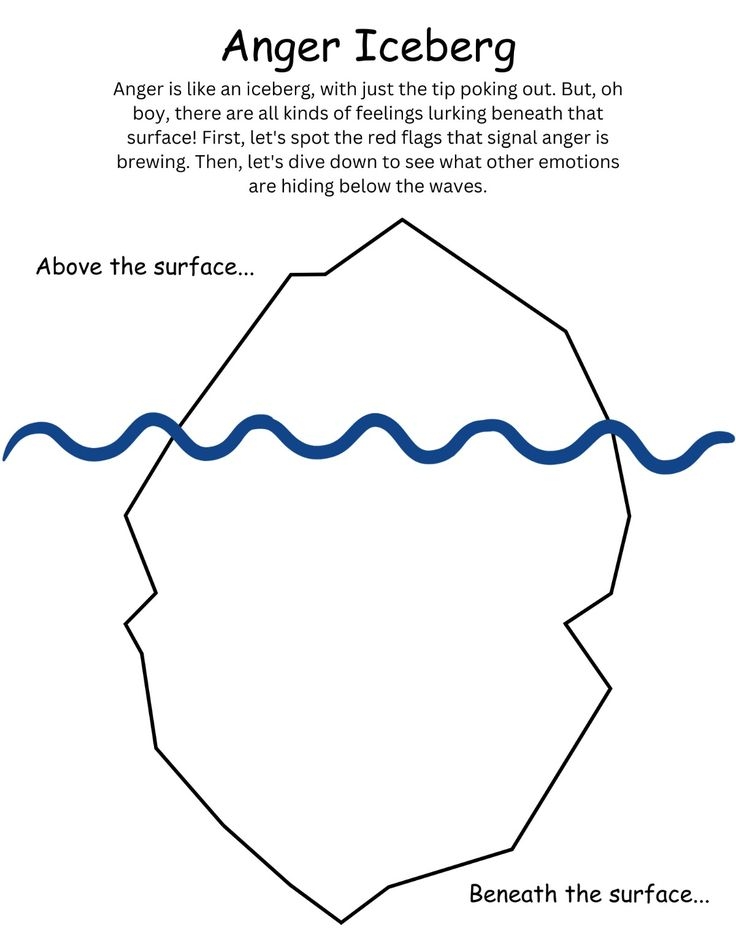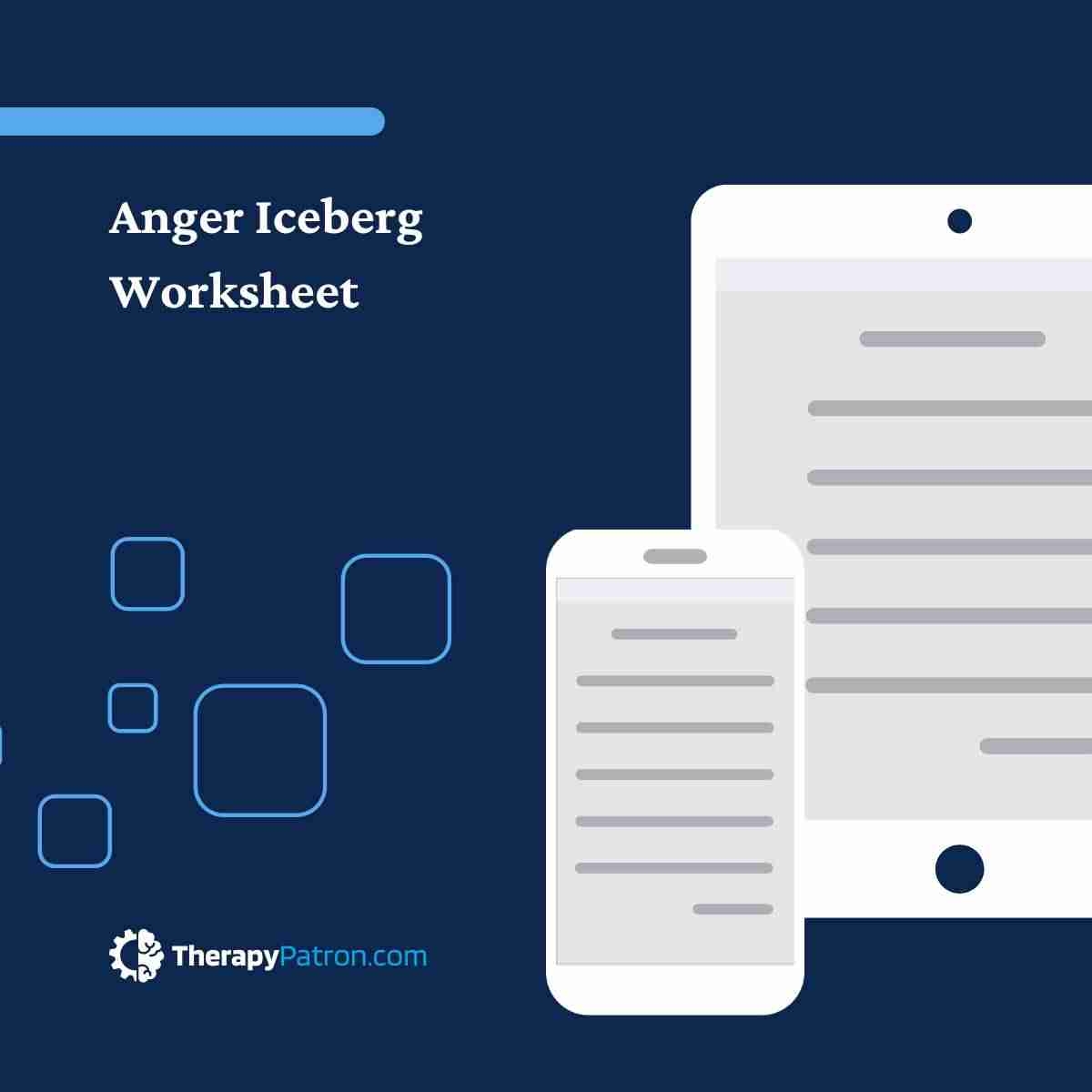Anger is a complex emotion that often masks deeper feelings and emotions beneath the surface. The anger iceberg worksheet is a tool used in therapy and counseling to help individuals explore and understand the underlying causes of their anger. By identifying and addressing these hidden emotions, individuals can work towards managing their anger in a healthier way.
At first glance, anger may appear to be the primary emotion being experienced. However, the anger iceberg concept suggests that there are underlying emotions, such as fear, sadness, or hurt, that are driving the anger. By using the iceberg analogy, individuals can visualize how these hidden emotions are the foundation of their anger, just like how the majority of an iceberg is hidden beneath the surface of the water.
When using the anger iceberg worksheet, individuals are prompted to identify and explore the emotions that lie beneath their anger. This may involve reflecting on past experiences, triggers, and patterns of behavior that contribute to their feelings of anger. By gaining insight into these underlying emotions, individuals can begin to address them and develop healthier coping mechanisms.
Through the process of completing the anger iceberg worksheet, individuals can gain a better understanding of themselves and their emotions. This self-awareness can empower individuals to take control of their anger and respond to situations in a more constructive manner. By recognizing and addressing the root causes of their anger, individuals can work towards healing and personal growth.
Overall, the anger iceberg worksheet is a valuable tool for individuals seeking to explore and understand their emotions. By delving beneath the surface of their anger, individuals can uncover the deeper feelings and experiences that are driving their emotions. Through self-reflection and introspection, individuals can work towards managing their anger in a healthy and productive way.
In conclusion, the anger iceberg worksheet serves as a powerful tool for individuals to gain insight into the underlying causes of their anger. By recognizing and addressing these hidden emotions, individuals can work towards managing their anger in a healthier way. Through self-awareness and introspection, individuals can navigate their emotions more effectively and cultivate personal growth.

